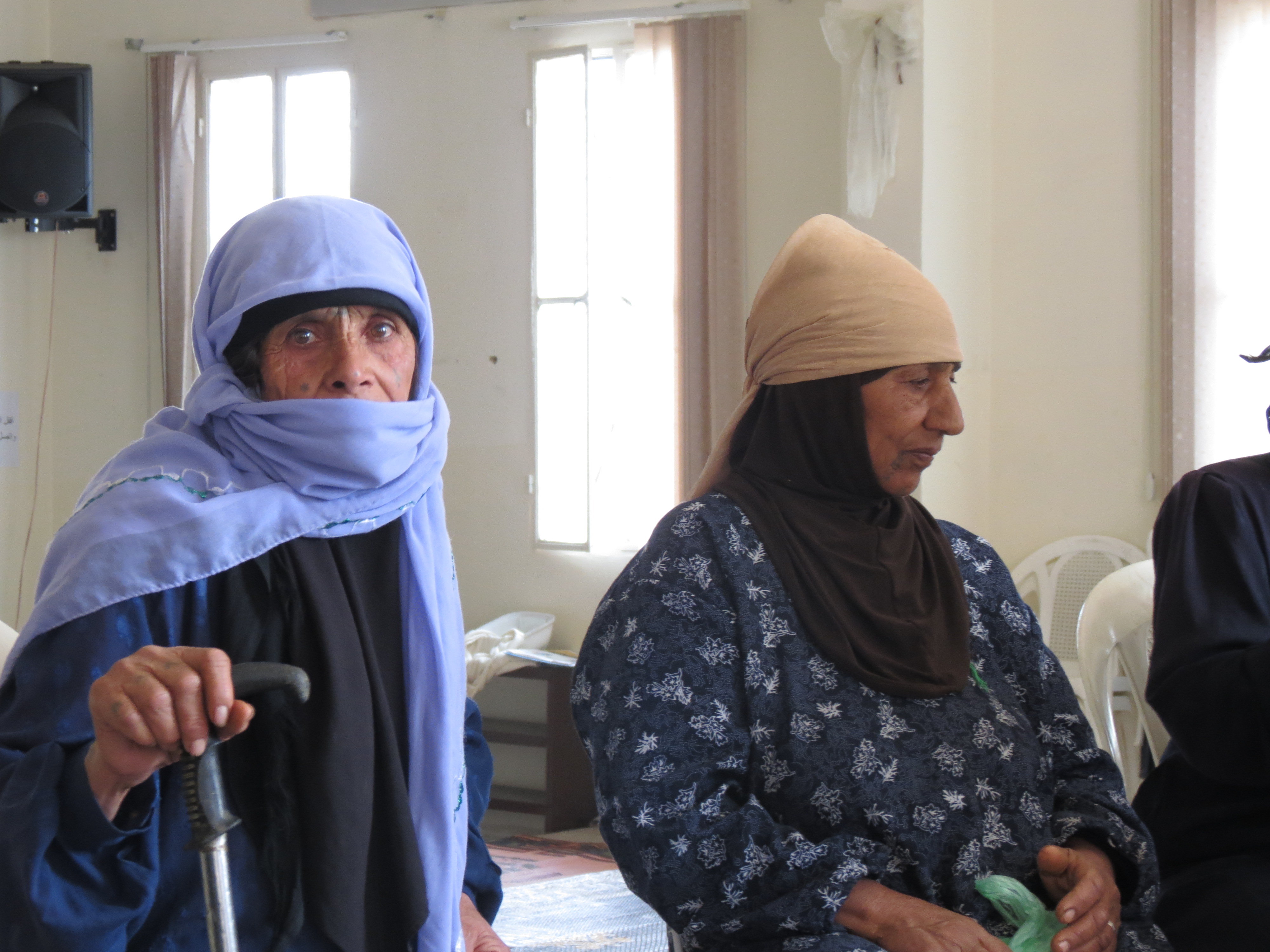
New research funded by Age International shows that older, disabled and injured Syrian refugees are the hidden victims of the three-year long conflict. Agencies are not only failing to take into account their specific needs, but also failing to identify them.
The report has been produced by our sister organisation, HelpAge, and Handicap International, through whom we have supported work with older refuges in response to the Syria crisis. Age International is supporting older Syrian refugees in Lebanon.
22 per cent of refugees have a disability
According to the United Nations’ refugee agency – UNHCR – only 1.4 per cent of registered refugees has a disability. However, HelpAge and Handicap International’s research puts this figure at a staggering 22 per cent, with 6 per cent having a severe impairment.
As the report states ‘identifying impairment is a complex process and one that cannot be done easily by untrained staff.’
Chris Roles, Director of Age International, says ‘This research shows that older people are the hidden victims of the Syrian refugee crisis. Their needs must be taken into account by all agencies working with older refugees. The first step to doing this is identifying them. the second step is ensuring aid is appropriate for them.’
Limitations of registration system
In the UNHCR data, a significant percentage (23 per cent) of disabilities are ‘unspecified’. This new research shows that sensory impairments are less likely to be identified than physical impairments.
- UNHCR claims that 2 per cent of registered refugees have a visual impairment. HelpAge and Handicap International research identifies 28 per cent
- UNHCR states that 2 per cent have hearing impairments; the new research identifies 12 per cent
- UNHCR identifies 1 per cent with speech impairments, compared to 7 per cent in this survey
According to the report: ‘The discrepancies in the findings indicate that those with debilitating but less severe conditions, such as visual impairments, are not being identified and are not receiving the support they need to access services. Consequently, there is an urgent need to build the capacity of UNHCR staff responsible for registration to identify those with impairments and to revise the current UNHCR registration format to ensure this information is accurately recorded and used in programme design.’
Making the invisible visible
Chris Roles says ‘If people with impairments are not identified by service providers, they may be inadvertently excluded from assistance and support programmes.’
More precise targeting and registration of refugees and better training of staff will ensure humanitarian assistance is accessible, appropriate and effective.
Age International is continuing to support vulnerable older Syrian refugees in Jordan and Lebanon and this report highlights the importance of our joint work in focusing on, drawing attention to the needs of, and advocating on behalf of the most vulnerable older people.
